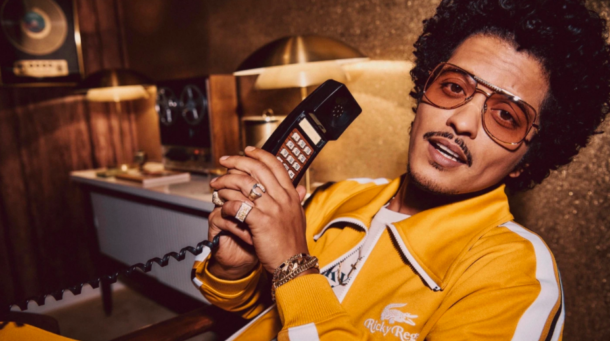Bruno Mars is helping raise money for music education…
The Grammy Museum has announced a campaign for music education, featuring the 37-year-old part-Puerto Rican singer/songwriter, with the goal of raising $3 million to $5 million for their educational programs.
The funds raised over the 18-month campaign will provide free admission to the Grammy Museum in downtown Los Angeles for everybody up to age 18 and for all college students with ID and expanded access to their music education programs across the country.
In addition to Mars, the campaign is co-chaired by Billie Eilish, Dua Lipa, Shawn Mendes and Rosalía.
Michael Sticka, president and CEO of The Grammy Museum, says the museum’s goal is to raise “anywhere from $3 million to $5 million – and this money goes directly to the education programs. As of [October 7] we’re at about 25% of the top end of that goal, so there’s quite a bit of momentum here.”
That money has come from foundations. The museum is now starting to reach out to labels, publishers, artists, promoters and more for additional funding. “We’ve started some of the conversations with the industry,” Sticka says.
How’s that going? “No one has said no yet,” he replies.
Has anyone in the industry said “You make a lot of money from the Grammy telecast and from the MusiCares person of the year gala. Why don’t you fund your programs yourself?”
“We always hear that,” Sticka acknowledges. “I think there’s a general confusion out there of how everything is structured. The Grammy Museum Foundation is separate from the Recording Academy, so we don’t make any money off of the telecast. We’re separate from MusiCares, so we don’t see any of the money that comes in from person of the year. That goes to their important mission. We’re all part of the same family, but we are a separate entity.
“We do receive funding from the Recording Academy. They provide a healthy percentage of our operating budget, then we go out and we raise money. This money [that we raise] doesn’t go to salaries or overhead because the Academy helps subsidize that. This money goes directly to the education programs.
“Our goal with this campaign is very simple, to do our best to democratize music education by expanding our reach into underserved communities where access to our museum and educational programs could make a huge impact, and ultimately foster the next generation of music’s creators and leaders,” Sticka said in a statement.


